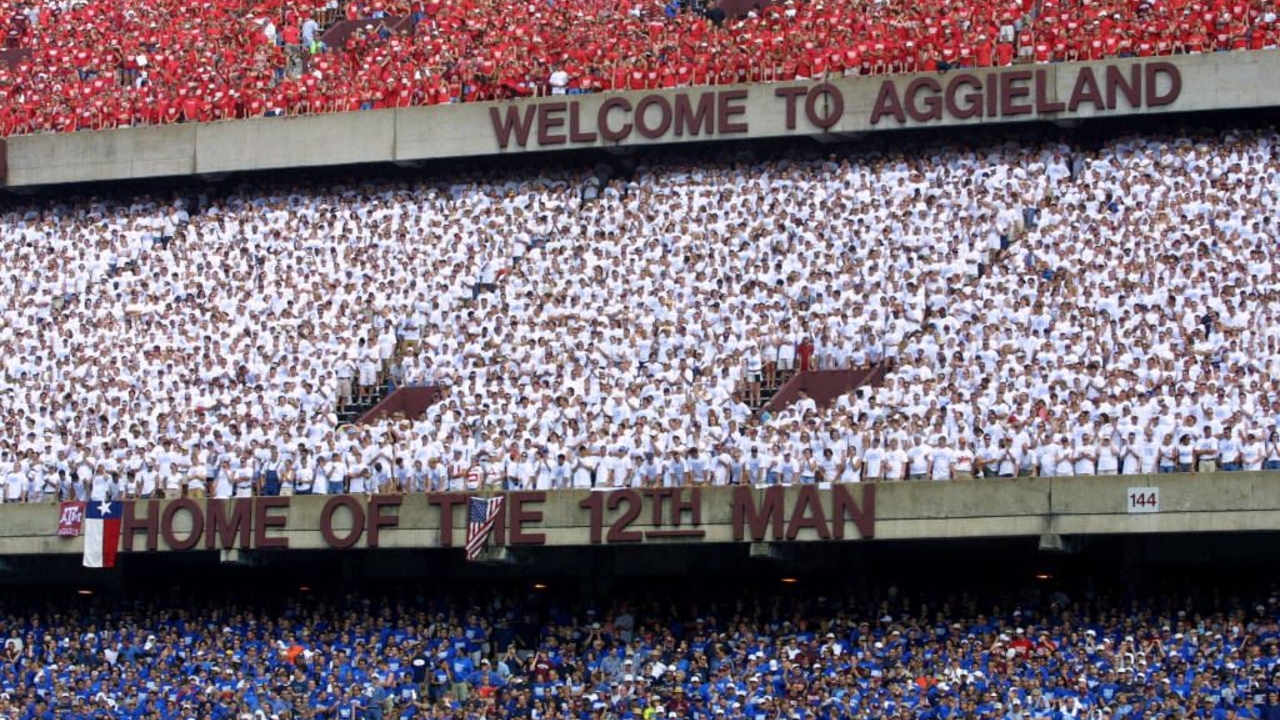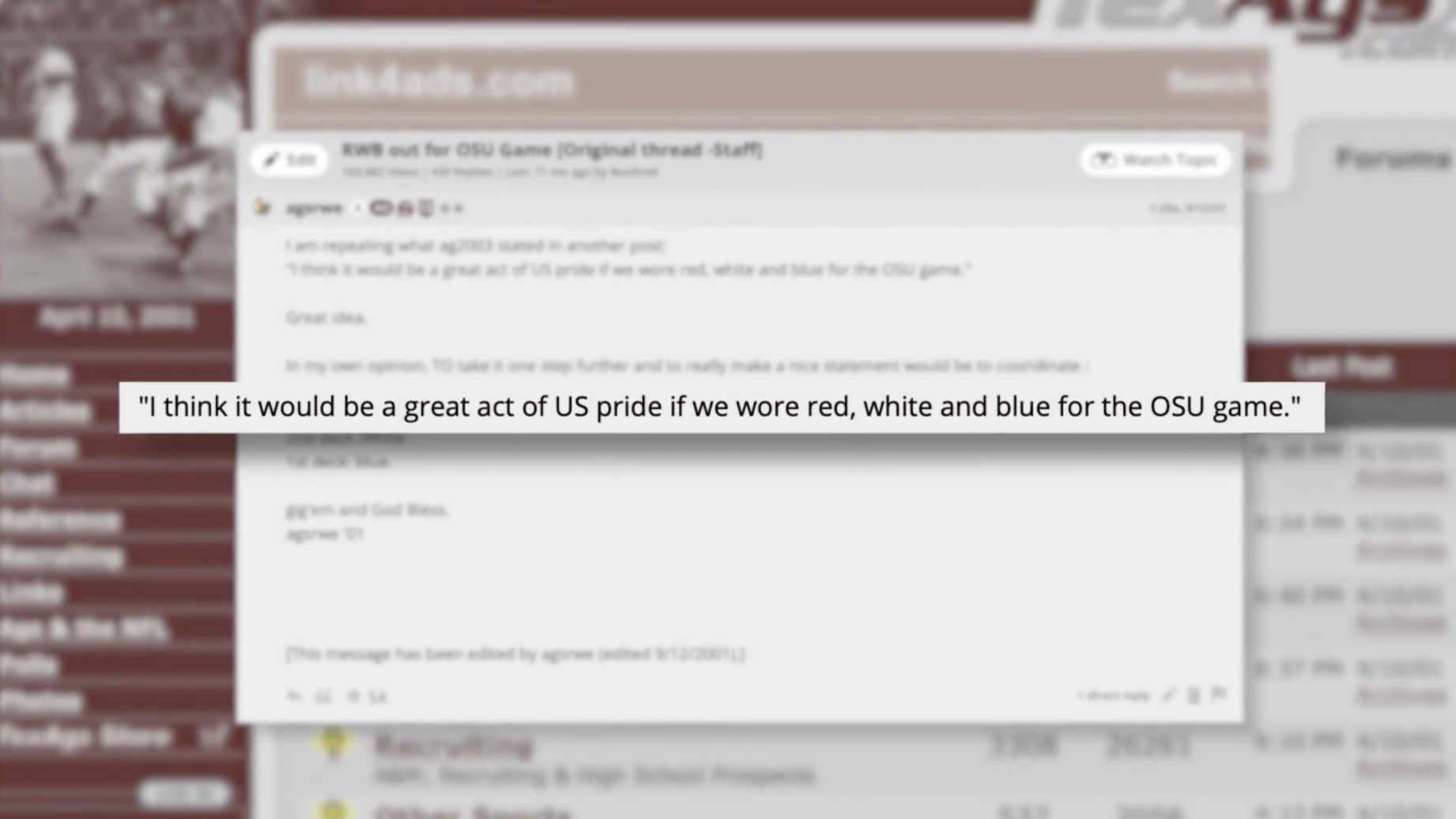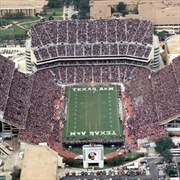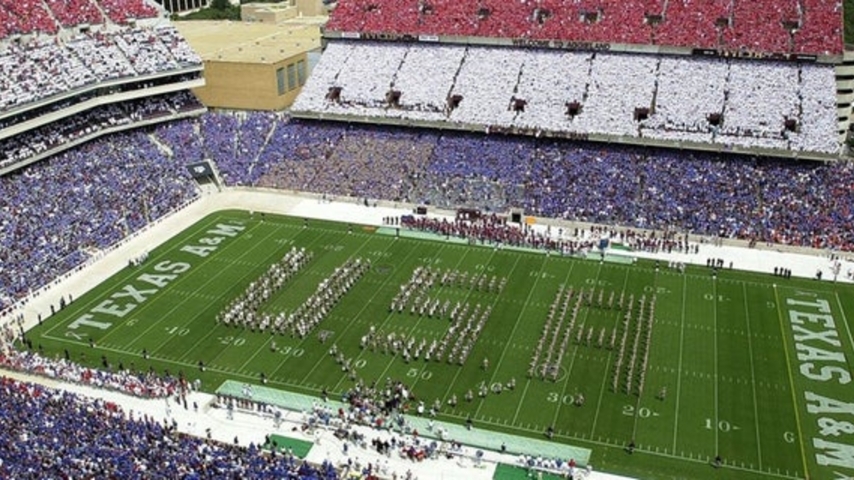
Aggieland, USA: 20 years ago, the Aggie Spirit embodied the American Spirit
Video produced by Jamie Maury, edited by Lindsay Caudle, cinematography by Casey Atnip
Eric Bethea was running late for his Texas A&M accounting class. Kourtney Gruner was surfing the web rather than listening to a lecture. Nick Luton was working on campus.
Like almost all of us, Bethea, Gruner and Luton remember exactly where they were and what they were doing when terrorists attacked the World Trade Center and Pentagon on Sept. 11, 2001.
And like almost all of us, they recall being engulfed in a cascade of conflicting emotions. Should they be irate? Or despondent? Or vindictive? Or just dazed?
“Initially, I was just in shock and didn’t know what to think,” Bethea recalled 20 years later. “I didn’t know if it was an attack or an accident. There was more sadness and shock, especially after the (World Trade Center) towers had fallen.
“Once it became apparent it was terrorist attacks the shock turned to …. I don’t think anger is the right word. It was, ‘I can’t believe this happened on our soil.’ It was my generation’s Pearl Harbor. I can’t even really describe it.”
In the wake of that loss of innocence and security, Bethea was unsure of so much. However, he was sure he wanted to do something.
How should he respond? How could he help the families of victims? How could he demonstrate love for his country?
What could a broke college kid about 1,600 miles away do?
Quite a lot, actually. And it all started with a post on the TexAgs message boards.

Ten days later, a seemingly impossible idea turned into an iconic display of national pride.
“Literally, that night I had all kinds of thoughts,” said Bethea, who was then a 20-year-old junior. “I was on TexAgs. On a whim at probably about 12 midnight I started a thread. Why not a ‘Red, White & Blue Out’ instead of a ‘Maroon Out?’ I just threw it out there.”
College football programs often have games in which fans wear matching T-shirts to bathe their stadiums in a dominant school color. Penn State has a “White Out.” A&M has a “Maroon Out.”
Those games are planned several months in advance. Fans have plenty of time to purchase their shirts.
A&M’s next game against Oklahoma State on Sept. 22 was less than two weeks away. Bethea’s idea would require printing, distributing and selling more than 70,000 T-shirts in 10 days. It would also require somehow coordinating the three colors being specifically worn in each of the three decks of Kyle Field.
He fell asleep thinking his idea was unrealistic. Then he woke up and checked his TexAgs post.
“I feel like that thread had a thousand comments,” he said. “I don’t know how people got my email address, but I had about 50 emails. I got phone calls. They were saying: ‘Dude, we can definitely do this.’ It was kind of a shock.”
Among those responding were Gruner, a 20-year-old from Lufkin who was studying Recreation, Parks and Tourism Sciences. Also responding were Luton, Cole Robertson and Josh Rosinski, who were officers in a student organization called One Army.

“I thought: ‘That’s a great idea. How can we coordinate that?’” said Gruner. “I remember it was a huge undertaking. But if anybody can get it done, Aggies can. At least we can try.”
Luton and his comrades were just as enthusiastic.
“We became fascinated with the idea,” Luton said. “We were thinking, ‘This is really unique. Is this something that could be pulled off? Is this something we can do? Can we help figure this thing out?’”
Bethea knew none of them, but all agreed to meet for lunch to discuss the project. They started by settling on a simple T-shirt design that proclaimed:
Standing For America
Aggieland, USA
The plan was for red shirts to be distributed to fans in the upper deck, white in the second tier and blue on the lower level.
Gruner worked with the A&M Athletic Ticket office on matching the color of T-shirts to corresponding decks. She also sent press releases to major media outlets in the state as well as The Battalion to announce their plans.
The task assigned to Luton, Robertson and Rosinski might have been more difficult.
“Our job was just to rally support,” Luton said. “Try to convince people this was something could be accomplished.”
Getting word out about the project was a major challenge. Social media was not yet a staple of American culture. Facebook would not be founded for two more years. Twitter came five years later. They had no website. E-mails were not as easily accessed.
They did, however, have the TexAgs message boards.
“TexAgs didn’t have the traffic it has now. It was just a place to talk,” Gruner said. “But it could not have happened without TexAgs.”
Bethea agreed.
“It got started with a post on TexAgs. A ton of people expressed interest,” he said. “Now, how much easier would it have been with cell phones and Twitter?”
They also had hundreds of Aggies who wanted to help in some way.
“Aggies love to rally around a cause,” said Luton, who now owns a real estate company in Houston. “I do think a lot of that was what you call the Spirit of Aggieland. They embraced this. It was a big thing in people’s minds to do something quickly after an emotional few days.”
Still, two enormous obstacles remained — time and money. They had to print all those shirts. And they had to pay for them.
That’s when the Aggie spirit that Luton alluded to kept the project going.
C.C. Creations, a College Station-based custom screen printing company, agreed to produce the T-shirts at cost — about $2.50 each.
The plan was to print 5,000 T-shirts and sell them for $5. Those sold out in about 20 minutes. Soon afterward, more orders poured in.
Just when the financing hurdle was apparently cleared, another obstacle arose. Paying for shirts is one thing. Producing them is another. That required a lot of work in a short period of time.
“They (C.C. Creations) said, ‘You’re going to need manpower. Our staffs aren’t built to work 24/7 for a week. They’re exhausted,’” Bethea said. “They said, ‘If you can get student volunteers, we’ll train them to use our printers. But you’ll need to find more red, white and blue shirts from around the country. There are none in Texas.’”
The group put out a call to request help. The volunteer response would’ve impressed those in Tennessee.
Student groups worked around the clock to print shirts. Other companies helped out. Former students in Dallas, Louisiana, Oklahoma, New Mexico and Arkansas headed to College Station, buying as many red T-shirts, white T-shirts and blue T-shirts as they could find on the way.
“It’s remarkable how it came together,” Bethea said.
None of them realized how remarkable until well after kickoff on game day.
“We were unloading at Rudder Fountain at 6:30 in the morning,” Luton said. “There was a line of people that just wanted a shirt. I stayed there until we sold everything. I think we sold our last shirt just before kickoff.”
Oklahoma State fans who learned of the idea wanted to be involved. They’d check their seats and ask which color to buy.
When the final sale was completed, the money was first deposited in a bank account set up for the project. Even in Aggieland, it’s unwise to walk around with more than $100,000 in a backpack.
After that, Bethea, Gruner, Luton, Robertson and Rosinski headed to Kyle Field. They were astonished.

Kyle Field was transformed into a symbol of patriotism. The upper deck was awash in red, the middle was white and the lower deck was blue. Even coach R.C. Slocum wore a red shirt on the sideline.
It was perfect.
“Oh my gosh. It still gives me chills,” Gruner said. “This is what we envisioned, but I never thought it would be to this degree and magnitude.”
Luton added: “When I walked into the stadium I was absolutely floored. We were blown away. In the white shirt section, only a handful of people were not wearing white.
“A lot of people took it upon themselves. It was ‘If I can’t buy a blue shirt, I’ll just get a blue shirt from my closet.’”
Bethea didn’t get to Kyle Field until halftime. But as he made his way to the stadium, people were telling him what an incredible spectacle his idea had become.
“I went back to my second deck seat for the second half,” he said. “It was awesome. I’m 99 percent sure we won the game. Honestly, I don’t remember. It was just a blur.”
A&M did win what has become recognized as perhaps one of the top ten most memorable games at Kyle Field.
However, some might struggle to recall the score or who starred. For the record, the Aggies prevailed 21-7. Keith Joseph ran for a touchdown, Mark Farris threw a touchdown pass to Jamaar Taylor and Wes Bautovich blocked a punt that Eric Crutchfield recovered in the end zone to account for the Aggies’ scoring.
The most significant number, though, was $180,000. That’s how much the Aggies raised through sales of T-shirts and posters.
Two months later, Bethea and his cohorts visited New York to donate the funds. Half went to the Police Patrolmen’s Benevolent Society. The other half went to the Firefighters Association.
It was a generous gift spawned from a heartfelt idea that became an iconic moment.
“It was just Aggies being Aggies,” Luton said. “Rallying behind something unique and inspiring. It was just their small way of showing patriotism and love for their country.”

